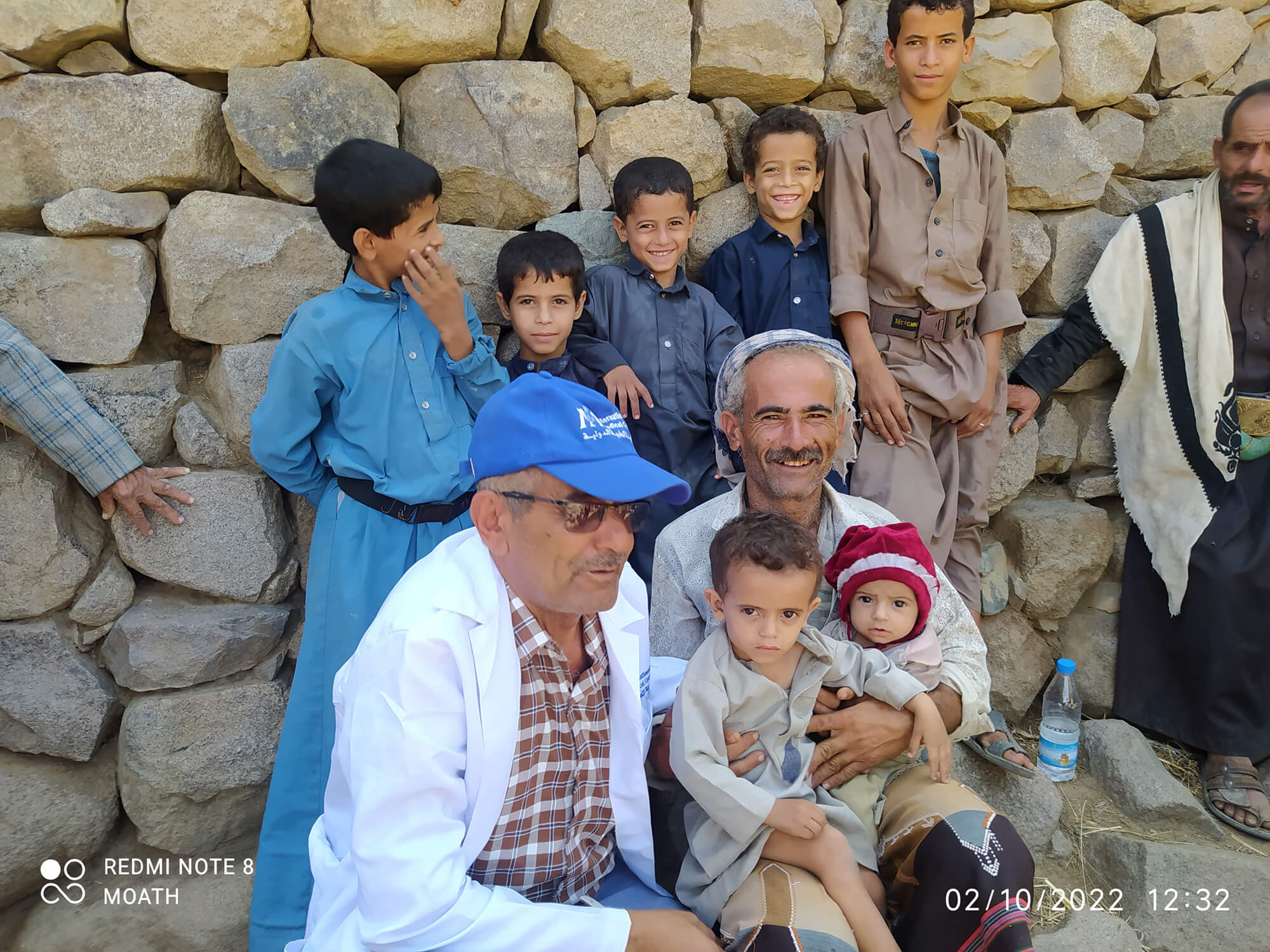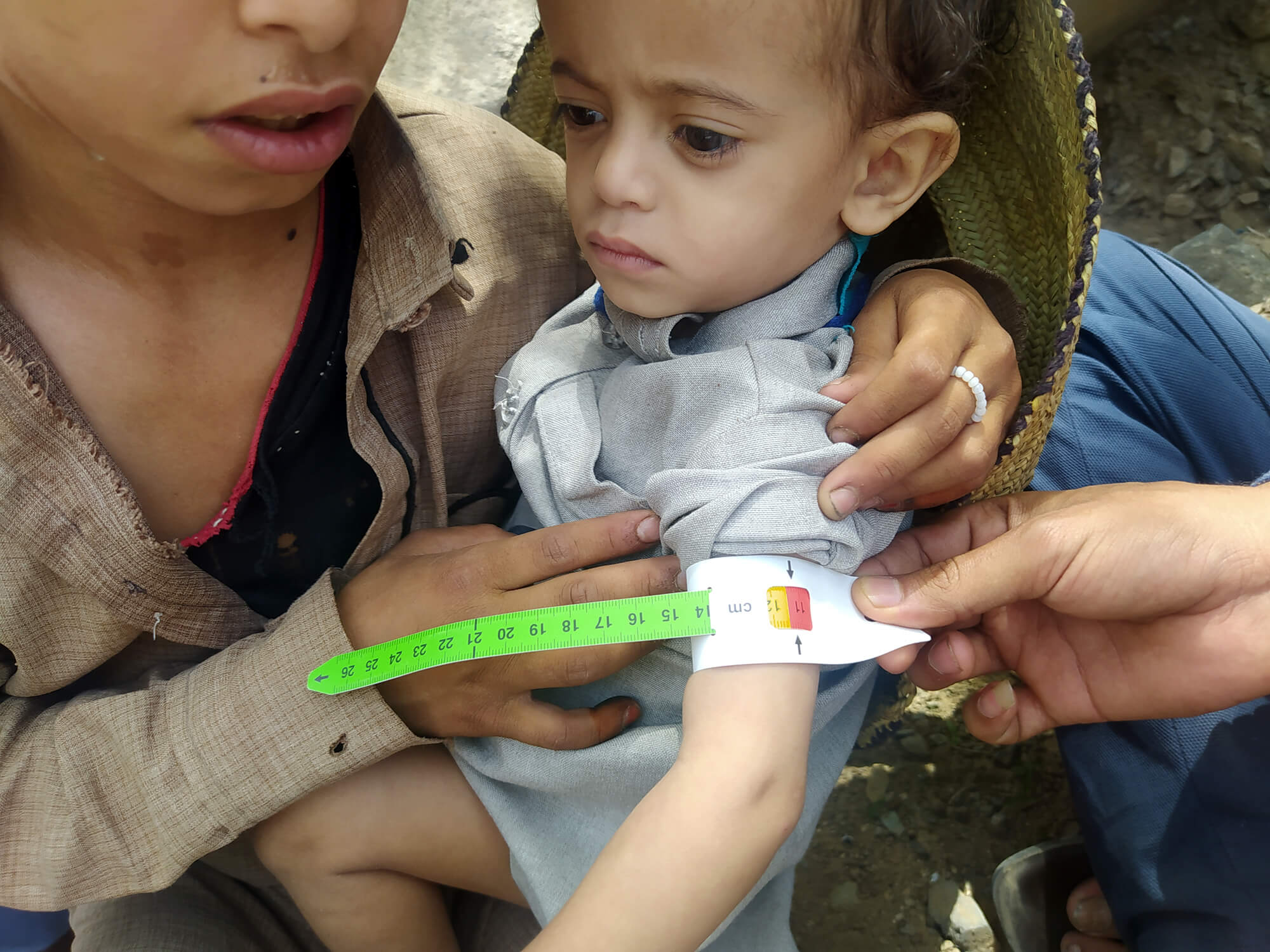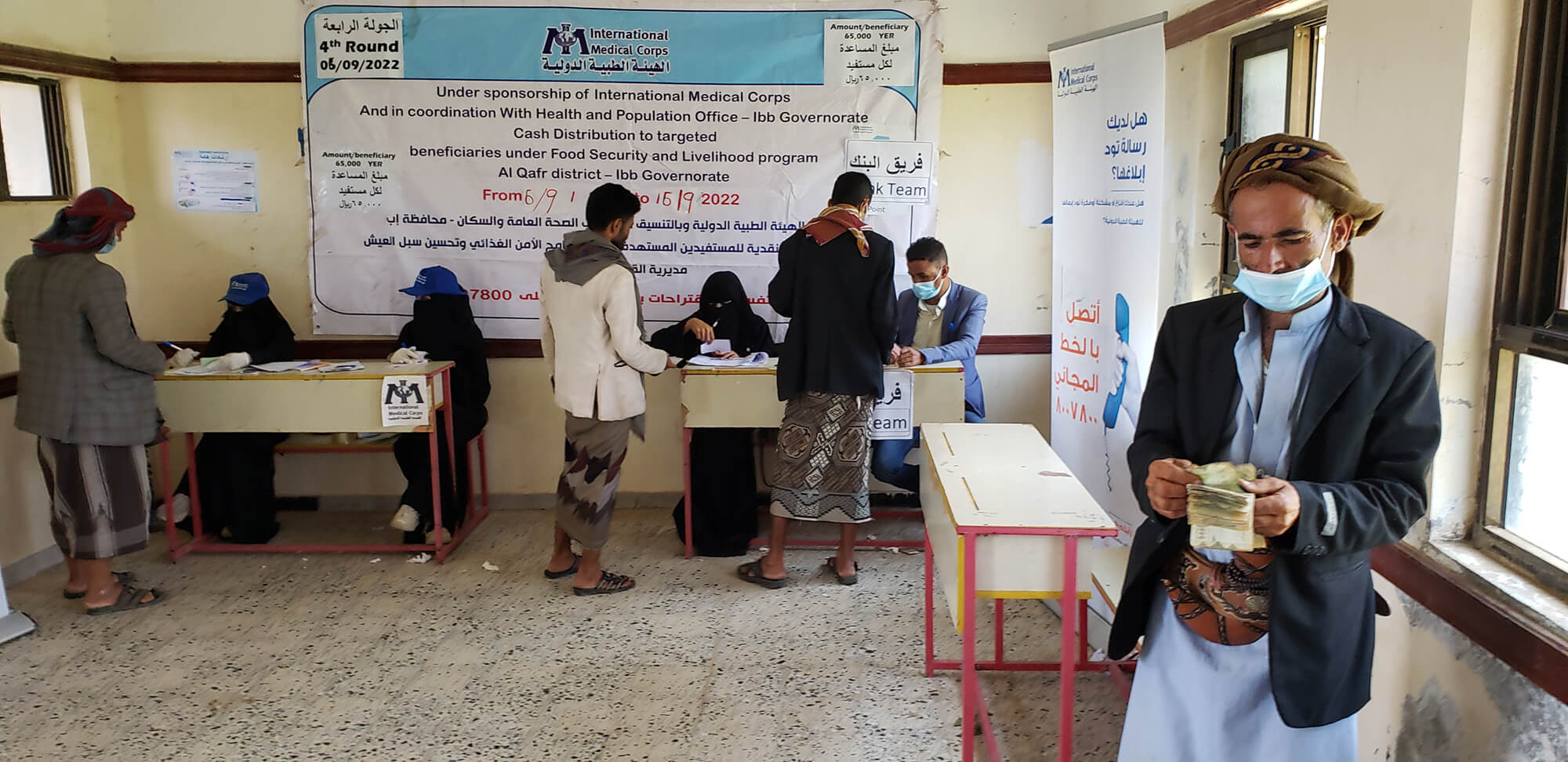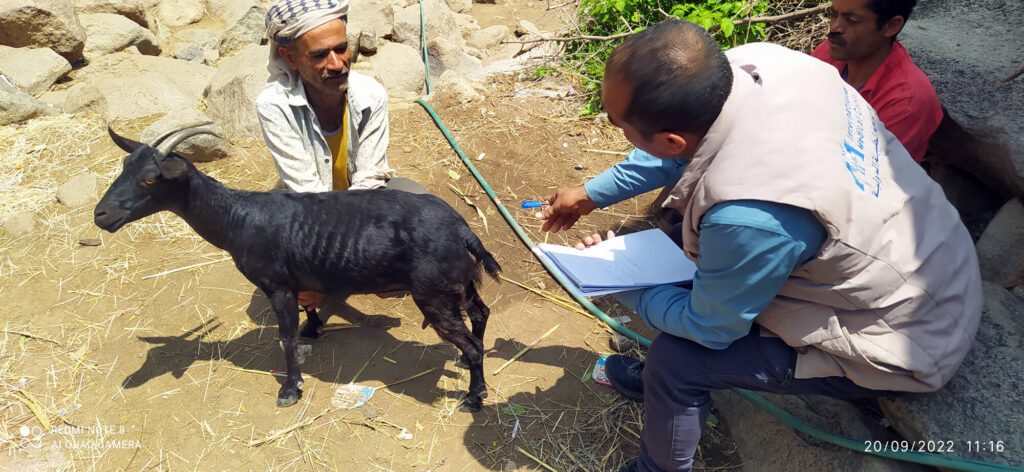Seven years of armed conflict have resulted in a dire food crisis in Yemen, with nearly 17.4 million Yemenis classified as experiencing high levels of acute food insecurity, and 2.2 million children in need of treatment for acute malnutrition.
To prevent malnutrition and reduce the vulnerability of crisis-affected families in Yemen, International Medical Corps is providing an unconditional cash transfer to the most vulnerable conflict-affected households in Ibb and Al Dhale’e governorates. As part of the project’s integrated approach, International Medical Corps targets vulnerable households with children under 5 who are suffering from severe or moderate acute malnutrition (SAM or MAM) and pregnant or lactating women (PLWs). These women and children are registered at International Medical Corps-supported health facilities, and we give their households cash assistance.

Faisal Ahmed Abdo, a 52-year-old father of 11 children, lives in Al Aghmoor village in Al Qafr district in Ibb governorate. Faisal works in his village as a day laborer and doesn’t have a stable source of income. Before the war, he had goats and sheep that were a source of milk and meat, and he sold some of them to buy food and medicine for his family.
As the war continued and the cost of food items sharply increased, the money he earned from his work was not enough to buy the basic food items his family needed. Faisal could hardly afford wheat flour to make bread and porridge, which was often their only food. After Faisal sold his goats to buy flour, the family had to rely on the occasional generosity of his neighbors, who sometimes gave them milk. The family used wood as fuel for baking and cooking, as Faisal could not afford to buy cooking gas. Faisal said that there were many days when he and his children went to bed without eating. Though their neighbors were helping them with food, it was not enough for the big family.

Faisal’s wife, Aseelah, had recently delivered twins—only one of whom survived—and suffered from complications during the delivery. Faisal didn’t expect her to survive. Women from the village brought wheat flour and milk for the children, and for Aseelah as she recovered. Meanwhile, Faisal’s 4-year-old son, Seif, who was sick from birth, was also very weak and skinny and cried much of the time.
One day, Faisal heard from some people in the village that Al Mabda Health Unit (HU), which is supported by International Medical Corps, provides free healthcare to mothers and sick children, so he took Aseelah and Seif to the facility. The health workers there found Seif to be suffering from SAM, and Aseelah, who was lactating, was also found to be suffering from malnutrition. They registered both on malnutrition lists in January 2022, and Seif and Aseelah started receiving nutrition commodities from Al Mabda HU. Faisal continued to regularly visit the HU to get nutrition supplements for his wife and child, even though it took him an hour-and-a-half to travel there on foot.
Three months later, two International Medical Corps health workers visited Faisal in his home and asked to see Seif. They took his mid-upper arm circumference—a measurement that determines whether a child is malnourished. The health workers asked him some questions, and at the end of the interview, they told him about International Medical Corps’ cash project. They informed him that he would receive cash assistance for six months to help him buy enough nutritious food for his family.

“I never doubted the credibility of International Medical Corps, because last year they were honest about distributing sheep and goats to poor families in Al Qafr,” Faisal told us.
Faisal said that after he started receiving cash from International Medical Corps, his life changed. Before, he could hardly buy wheat flour, and the family’s only meal was bread and porridge, but when he started receiving cash, he was able to buy enough food for three meals a day, including wheat flour, rice, vegetables, eggs, milk and even chicken once a week. When the health workers interviewed Faisal, they also saw Seif and took his mid-upper arm circumference, which showed that he had recovered from malnutrition.
Faisal managed to save some money from the monthly cash to buy a goat from one of his neighbors. “Now I have a goat, so I don’t need to request milk from my neighbors or buy it from the market,” Faisal said. “I am planning to keep my goat and will take care of it until it becomes part of a big herd.”
